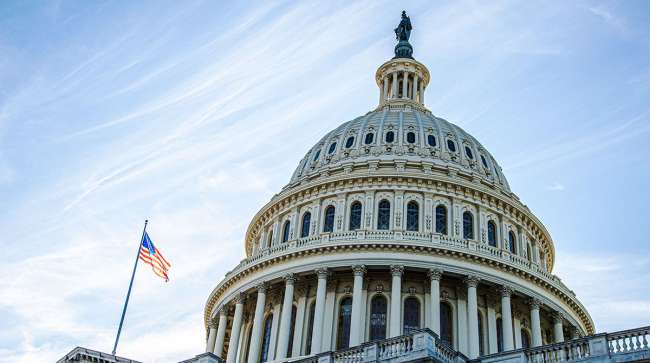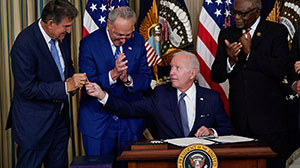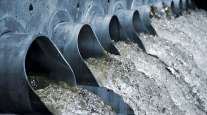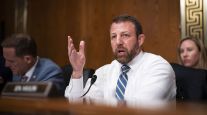Senior Reporter
Lawmakers Tout Legislative Wins Ahead of Fall Agenda

[Stay on top of transportation news: Get TTNews in your inbox.]
Heading out of summer recess, congressional Democrats and senior White House officials are spotlighting a batch of legislative achievements in the run-up toward midterm elections this fall.
The recent enactment of climate change and supply chain legislation, along with last year’s enactment of comprehensive infrastructure legislation, are the centerpieces of a policy portfolio Democratic leaders are promoting just months before some voters head to the polls.
They’re making their case as President Joe Biden contends with low approval ratings, high gas prices and mainstream dissatisfaction with the economy.
In August, Transportation Secretary Pete Buttigieg toured parts of the country to highlight aspects of the Inflation Reduction Act focused on climate change and social infrastructure programs. He also discussed funding for major infrastructure projects associated with the $1 trillion Infrastructure Investment and Jobs Act. The IIJA has been referred to as the bipartisan infrastructure law.
“We are proud to support so many outstanding infrastructure projects in communities large and small, modernizing America’s transportation systems to make them safer, more affordable, more accessible and more sustainable,” Buttigieg said Aug. 11. “Using funds from President Biden’s bipartisan infrastructure law, this year we are supporting more projects than ever before.”
Senate Majority Leader Chuck Schumer (D-N.Y.) has stressed that his chamber sought to promote severe-weather resilience for infrastructure projects, and improve connectivity along freight supply chains. Schumer also took aim at naysayers who doubted lawmakers’ ability to send legislation to the president’s desk.
“For the people who thought Washington was broken and couldn’t get things done, Democrats showed we can deliver real change that matters to everyday Americans,” Schumer said. “This [Inflation Reduction Act] tops off a highly productive six weeks that serves as a testament to Democrats’ persistence and hard work to deliver on our promise to the American people.”
Rep. Peter DeFazio (D-Ore.), who chairs the transportation policy panel in the U.S. House of Representatives, argued that the Inflation Reduction Act “will build on the success of the historic Infrastructure Investment and Jobs Act to make our infrastructure more resilient, protect the environment, and reduce greenhouse gas emissions.”
At a signing ceremony for that legislation, Biden said these legislative achievements are “part of our vision and plan and determined effort to get the job done for the American people.”
Republicans, focused on winning back control of the House and Senate, remain critical of the White House’s agenda. Sen. John Barrasso (R-Wyo.), a senior member of the Republican caucus, emphasized current economic conditions. “While the American economy is in a recession and inflation is at a 40-year high, the Democrats’ answer was 87,000 new IRS auditors,” he said. “Joe Biden’s reckless economic policies continue to fail Wyoming families.”
Want more news? Listen to today's daily briefing above or go here for more info
“Prices keep skyrocketing upward at historic rates,” indicated Sen. Mitch McConnell (R-Ky.), his party’s leader in the chamber. “Democrats have hammered working families with the worst food inflation and grocery inflation since 1979.”
Congress resumes its legislative schedule shortly after Labor Day. With the start of the autumn work period fast approaching, members of Congress will turn their attention to the fiscal 2023 government funding bills. In July, Senate Democrats introduced a transportation funding measure that would dedicate $367.5 million for the safety operations and programs division at the Federal Motor Carrier Safety Administration. For the agency’s safety grants division, senators proposed $506.1 million. The Senate’s funding proposal for FMCSA matched the House-passed levels as well as the White House’s request.
The bill “makes critical new investments to improve our nation’s infrastructure and further implements the promises made in the bipartisan infrastructure bill enacted into law,” argued Sen. Patrick Leahy (D-Vt.), chairman of the Appropriations Committee.





